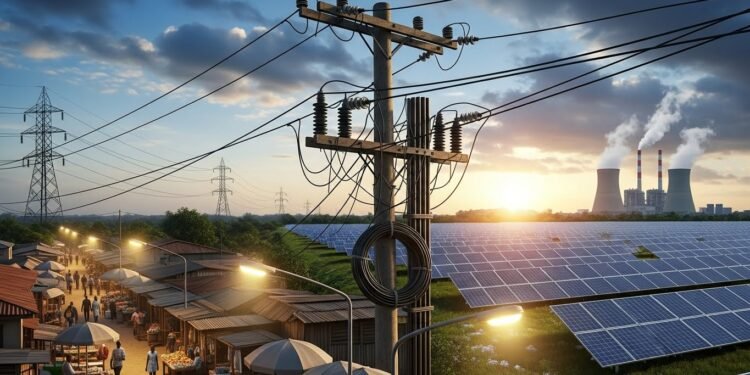China has announced its decision to impose reciprocal 34% tariffs on all imports from the United States from April 10, 2025.
This fulfills China’s promise to strike back after US President, Donald Trump escalated a global trade war.
In a move poised to cause a major reset of relations and worsen trade tension between the world’s two largest economies, Trump unveiled an additional 34% tariffs on all Chinese goods imports into the US.
Announcing its retaliatory tariffs, China’s State Council Tariff Commission said in a statement, “This practice of the US is not in line with international trade rules, seriously undermines China’s legitimate rights and interests, and is a typical unilateral bullying practice.”
Since returning to power in January, Trump had already levied two tranches of 10% additional duties on all Chinese imports, which the White House said was necessary to stem the flow of illicit fentanyl from the country to the US.
That means Chinese goods arriving in the US would be effectively subject to 54% tariffs.
The 54% tariffs are higher than what many analysts had expected and could fundamentally reshape relations, and roughly half a trillion dollars in trade, between the two economies after decades of interdependence.
As part of China’s retaliatory measures announced, the Asian country also added 11 American companies to its “unreliable entity list,” including drone manufacturers, and put export controls on 16 American companies to prohibit the export of Chinese dual-use items.
The Commerce Ministry also announced anti-dumping investigations into imported medical CT X-ray tubes originating from the United States and India.
In addition, Beijing also unveiled export controls on seven types of rare-earth minerals to the US, including samarium, gadolinium and terbium.
US stock futures plunged after China announced it would retaliate. Dow futures fell 1,000 points, or 2.3%.
The broader S&P 500 was set to open 2.4% lower and the tech-heavy Nasdaq Composite was on pace to start the day 2.7% lower. European and UK stocks were down more than 3% Friday, on pace for their worst performance in years.
Speaking to reporters at a meeting of NATO Foreign Ministers in Brussels, US Secretary of State, Marco Rubio acknowledged that “markets are crashing” following the Trump administration’s launch of sweeping global tariffs, but claimed “the markets will adjust.”
“Businesses around the world, including in trade and global trade, they just need to know what the rules are. Once they know what the rules are, they will adjust to those rules.”
Marco Rubio
Trump Calls China’s Tariff “Panic“

US President, Donald Trump said that China “panicked” in response to his tariffs after the nation said that it will impose 34% reciprocal tariffs on imports of US goods.
Trump posted on Truth Social, “CHINA PLAYED IT WRONG, THEY PANICKED – THE ONE THING THEY CANNOT AFFORD TO DO!”
Meanwhile, American Soybean Association Chairman, Josh Gackle said that China’s upcoming 34% reciprocal tariffs on all imports from the US “creates additional challenges for us as farmers” as soybean season approaches.
“Coming from North Dakota, it’s specifically important here. A vast majority, 60 to 70% of the soybeans that we grow in any given year are destined for that Chinese market. So it creates added uncertainty, additional risks in a time where the farm economy in general is struggling.”
Josh Gackle
Gackle noted that China has been a reliable partner in a reliable market for decades and he hopes the Trump administration recognizes agriculture exports are important to rural America.
He also pointed to short-term and long-term consequences of the tariffs.
“There’s this short-term impact of loss in the market price, but there’s also long-term considerations. And when you you get into a trade situation like this, China and other countries, they’re going to start to look to other suppliers. One of our biggest competitors when it comes to soybeans and corn as well is South America, specifically Brazil.”
Josh Gackle
The challenges are now multifold for businesses with supply chains rooted in China, which are left scrambling as they face not only the unexpectedly high US levies on Chinese imports, but also on other Asian countries due to Trump’s broad-based tariffs.























